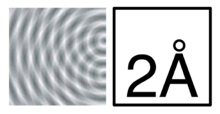Do Be Ashamed to Use the Thesaurus (but There's Hope)
/Recently the Quote of the Day on AdviceToWriters.com was from Susan Orlean, who wrote:
“Don’t be ashamed to use the thesaurus. I could spend all day reading Roget’s! There’s nothing better when you’re in a hurry and you need the right word right now.”
Of course, I have to make the standard (and sincere) disclaimer that Ms. Orlean is a fantastic journalist and could, possibly literally, write circles around me. (Have you seen her walking desk?) Her reporting is thorough, her prose amazing and evocative (not synonyms).
But here she's wrong, at least in her advice to others. Do not recommend the thesaurus to fledgling writers. It's not a question of quality, of Roget v. Roger; it's a question of what the tool is.
A thesaurus is a list of synonyms. It's a simple list. The Visual Thesaurus is a great visualization, and can give a little insight into word families, but it's still basically a list. What's the problem with that, you may ask?
A list is not: hierarchical, corrective, contextual, adaptive. Words have denotation and connotation, and this is tricky and fluid (not synonyms). Even if the thesaurus you use can, though the magic of HTML5, sort by "relevance", there's no telling what connotation the user has in mind.
For example, think of the word "use". Take a few seconds before reading on. Think about the word "use". Okay?
The list Thesaurus.com provides for "use" produces, alphabetically, in part:
“account
adoption
advantage
appliance
applicability
appropriateness
avail
benefit
call
capitalization
cause
convenience”
Switch it to sort by relevance, and you get:
“adoption
benefit
handling
help
need
operation
practice
purpose
service
treatment
usage
value”
How many of those words are truly synonyms for the "use" you'd thought of? Did you have something like "A fork is something I use every day" in mind? Would "A fork is something I adopt/practice/treatment/usage/value/etc. ever day" have the same meaning, or even make sense?
Of course, you say, you wouldn't make that mistake. Because you know what you meant, and you know what each word listed in the thesaurus meant. So you can avoid silly errors and miscommunications (not synonyms), while possibly sprinkling your prose with new or unusual words.
But what happens when people don't really understand the words and their denotations and connotations? "Cheap" and "niggardly" have technically been synonymous, but seriously: don't try it. The problem is that a thesaurus does not include any of this information, flattening distinctions, prompting users to pick almost randomly based on how the word sounds, perhaps to sound more eddicated or competent (example: managerspeak).
True story. One evening I was home and a friend sent me a message on IRC, asking if I could help her little brother revise his college essay. He read to her what he'd written so far, she typed it into chat to me, and after about two minutes, I typed back, "Tell you brother to throw away the thesaurus."
"How did you know!?" she typed back. I explained to her that almost every other word was Latinate, polysyllabic, and not quite right – and unnecessarily so. For example (and this paraphrased from memory), he'd written something along the lines of "My most abundant reveling lies in gamboling with progeny" when what he meant was "I like playing with children." His essay was full of it. I mean, full of such examples.
He used his thesaurus as though all the words were fungible. Though a synonym of "fungible" is synonymous, "mean the same thing" is not a synonym of "synonymous", not really. You can't just substitute words listed in a thesaurus, though the structure and format suggests so.
In
some ways, Orlean is making the same error that so many people and
companies in tech do: assuming you have the same level of experience and
competence (not synonyms) as they do. You can run across tech documentation that assumes you already know how the app, or code library, or service, works (I'm looking at you, Google); their help docs make sense to them, so what's your problem? Orlean can tell the fine distinctions between probably every single word Roget can throw at her – but most people can't, and so suggesting they use a thesaurus is just inviting people to grab from the buffet of misuse.
I'll suggest an alternative. The Dictionary of Synonyms (there are many like it, but this one is mine) offers synonyms for the word you want to avoid, but it provides definitions and contexts, so you don't sound like you're using a dirty Hungarian phrasebook. So, Ms. Orlean: big fan, but in this case, think of the children and revise, please.

